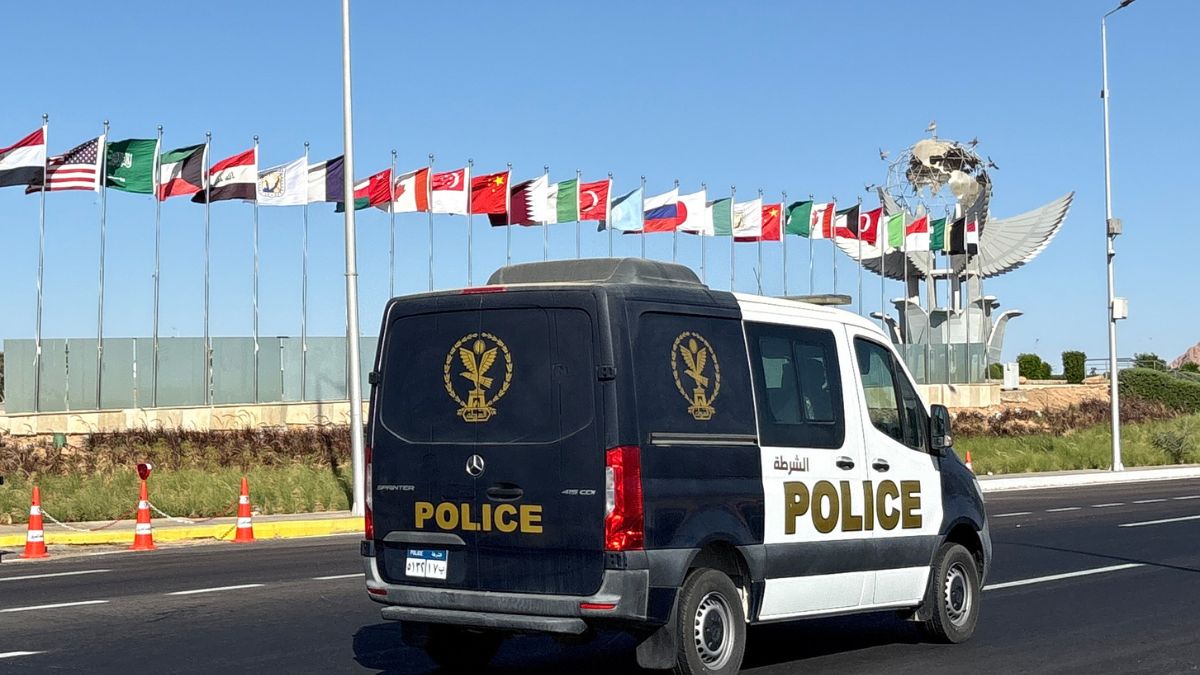Sharm El-Sheikh summit set to formalise landmark Gaza peace deal: Trump, Sisi to co-chair meet

Egypt will host a global peace summit in the Red Sea city of Sharm el-Sheikh on Monday, to be co-chaired by President Abdel Fattah el Sisi and US President Donald Trump.
According to the Egyptian president’s office, the summit is expected to formalise the terms of the Gaza peace deal. Among the confirmed attendees are UN Secretary-General Antonio Guterres, UK Prime Minister Keir Starmer, Italian Prime Minister Giorgia Meloni, Spanish Prime Minister Pedro Sanchez and French President Emmanuel Macron. Downing Street has confirmed Starmer’s attendance and indicated that the peace deal is expected to be signed at the summit. Prior to arriving in Egypt, Trump is expected to visit Israel, though it remains unclear whether Israeli Prime Minister Benjamin Netanyahu or any representatives from Hamas will be present.
The ceasefire agreement, brokered by the United States, has received widespread praise from both sides of the conflict. In Tel Aviv, tens of thousands gathered on Saturday in Hostages Square to mark the expected release of captives. Families of Israeli hostages credited the US president for securing the deal, not Netanyahu, whom they accused of prolonging the war for political reasons. Protesters booed when Trump’s envoy Steve Witkoff mentioned Netanyahu’s name, reflecting growing frustration with Israel’s leadership. A banner praising Trump was unfurled during the demonstration, while Witkoff publicly acknowledged Trump’s central role in achieving the ceasefire and the forthcoming release of hostages.
The deal also received recognition from senior Hamas figures. Dr Basem Naim, a leading official in the organisation, stated that the ceasefire would not have been possible without Trump’s personal involvement. He emphasised that Trump had applied direct pressure on Netanyahu to halt what he described as a “massacre,” adding that Hamas was thankful for the US president’s intervention.
The current ceasefire marks the first stage of a broader agreement, with tomorrow morning scheduled for the start of the exchange of hostages and prisoners. Under the terms of the deal, Hamas and other armed groups will release 20 live captives and return the bodies of 28 others. Israel will release approximately 250 Palestinian prisoners, as well as around 1,700 Gazans arrested during the conflict.
Observers believe that while the initial phase of the deal is relatively straightforward, the subsequent phases could test the resolve of key mediators like Trump to stay the course because of the intractable nature of the issues involved.
These include disarmament, the withdrawal of Israeli forces, and the future governance of Gaza. Hamas has previously insisted it would not release its remaining hostages without a full Israeli withdrawal, but has now done so on the basis of guarantees from Trump that such a withdrawal will eventually take place. Meanwhile, Israel remains firm on its demand that Hamas disarm completely and that its military capabilities, including its network of tunnels, be dismantled. Israel is also unwilling to cede control of key strategic areas in Gaza unless a global force is in charge of security.
There have been suggestions from Arab officials that Hamas may agree to hand over its offensive weapons to a Palestinian-Egyptian committee, a step that could pave the way for further progress.
On the matter of post-war governance, Hamas has signalled its willingness to step aside from directly ruling Gaza, proposing instead that a body of Palestinian technocrats take over. However, the group insists that the future of Gaza must be determined by Palestinians themselves. Israel, on the other hand, has ruled out involving the West Bank-based Palestinian Authority or supporting any arrangement that could lead to a Palestinian state. Trump’s plan outlines the deployment of an Arab-led international security force, supported by Palestinian police trained in Egypt and Jordan. Day-to-day affairs in Gaza would be managed by technocrats under the oversight of an international body with significant authority. Former British Prime Minister Tony Blair was named in the original proposal to lead this body, though Hamas has rejected any role for him due to his involvement in previous conflicts.
To monitor the ceasefire and oversee the transition, the United States will deploy around 200 troops to Israel. They will not enter Gaza but will operate from a civil-military coordination centre focused on logistics, humanitarian aid, and security assistance. The US forces will be supported by forces from Egypt, Qatar, Turkey, and the UAE to carry forward the terms of the ceasefire and aid Gaza’s post-war recovery.
Middle East